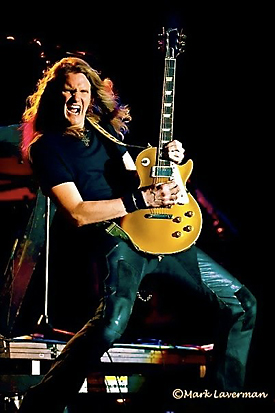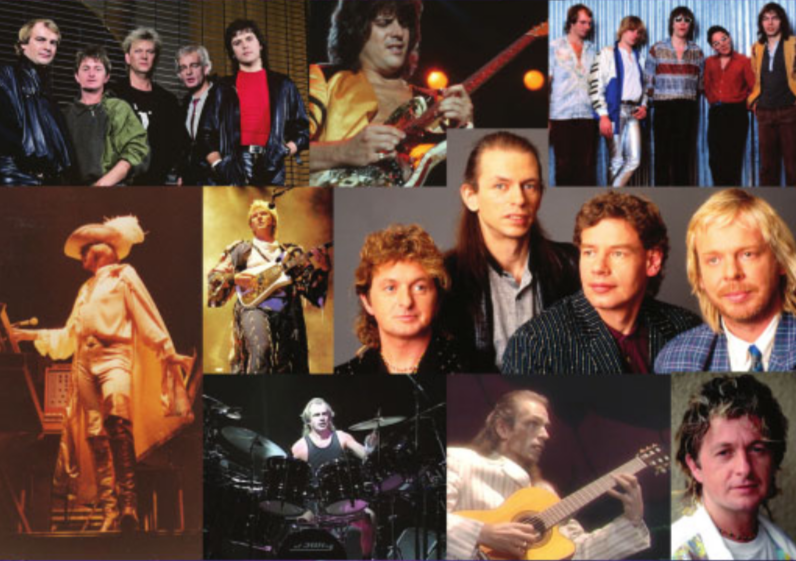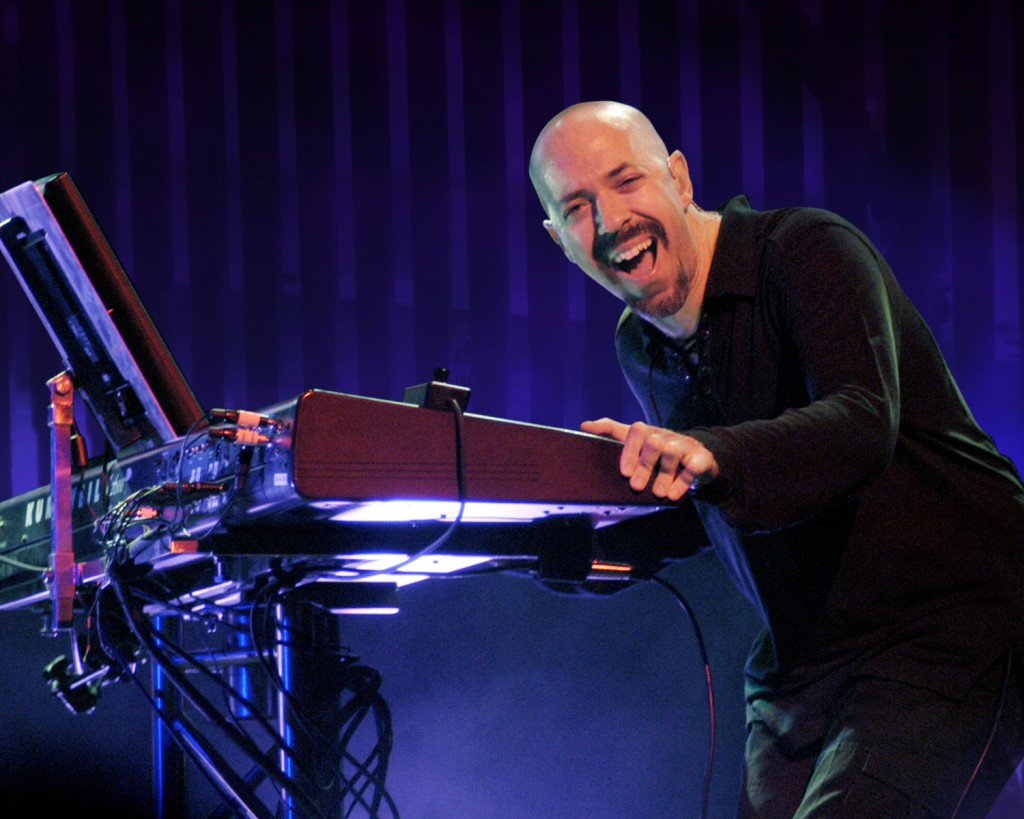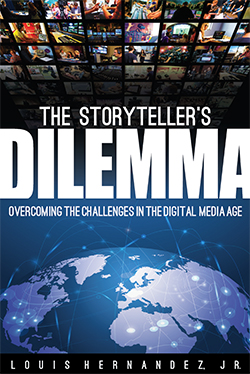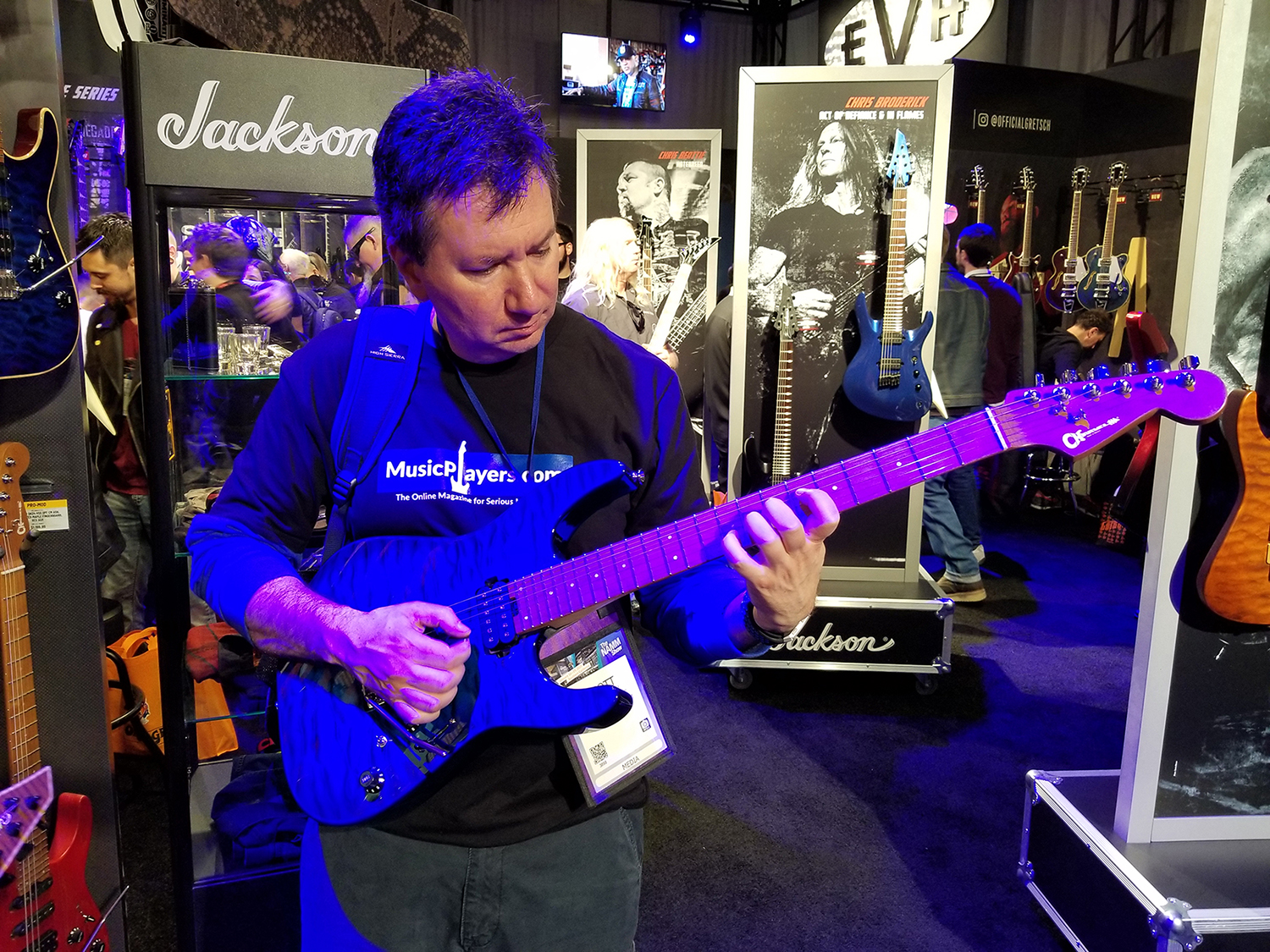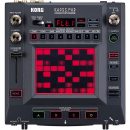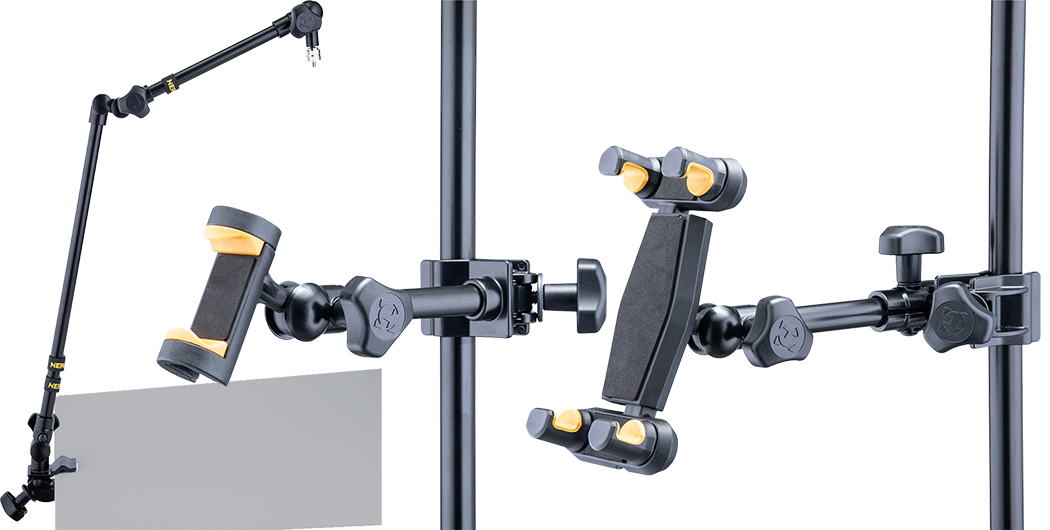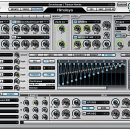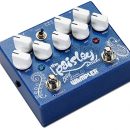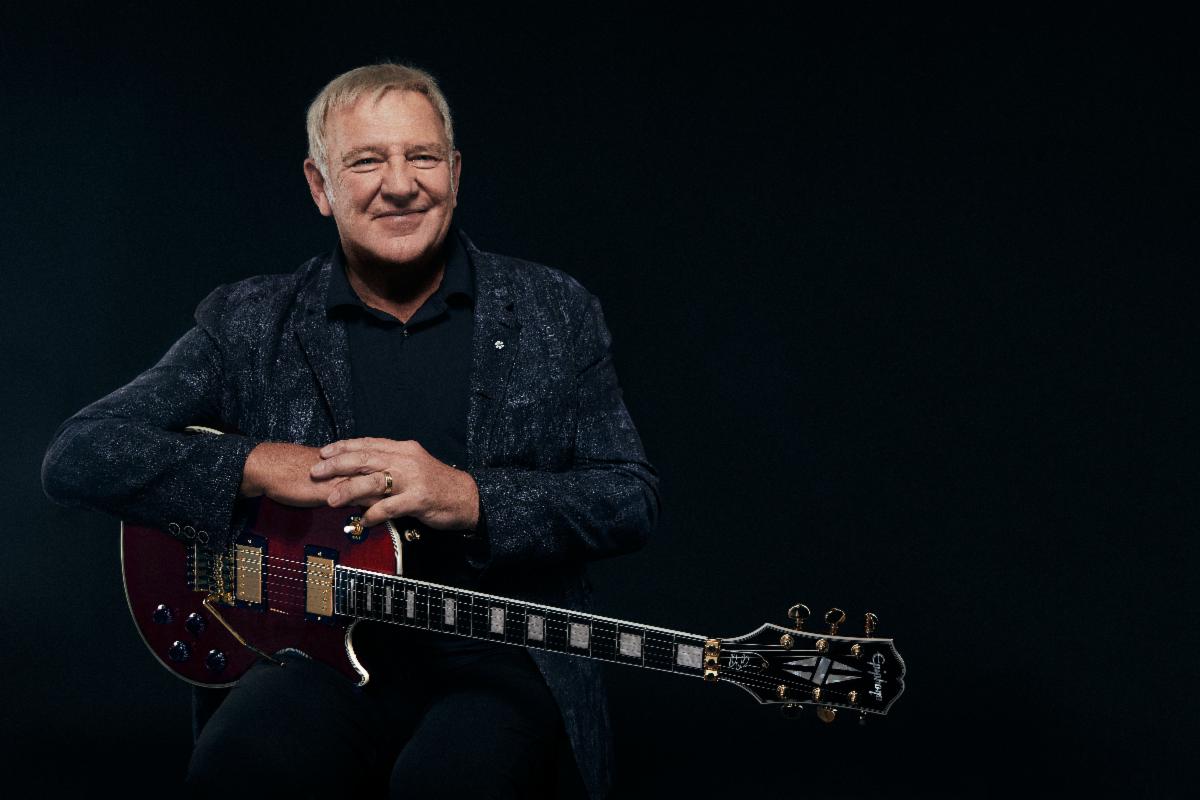Chris Squire is one of those bassists who hardly needs any introduction. As the bassist for legendary progressive rock band, Yes — now in its 44th year of existence, Squire’s unmistakable sound and style is instantly recognizable to bassists and guitar players alike. He is one of those gifted players who knows how to weave "songs within songs," and his bass lines are immediately identifiable because they regularly forge their own path that is more musically intriguing than simply following the guitar parts. Add the ability to sing vocal harmonies on top of bass lines in odd time signatures and you’ve got one monster musician who makes it all seem embarrassingly easy.
We grabbed twenty minutes of his time while on the road in support of the latest Yes studio release, Fly From Here. It wasn’t much, but just enough time to get some background on a few things that you may have been wondering for just about as long as we have.
“The fact I’ve been there
the whole time
is more by default
than it has been by design.”
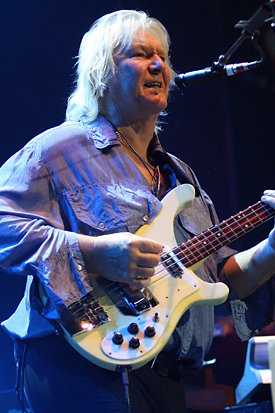 MPc: Talking about the new album, Fly From Here, to many people, in some ways, it’s a reunion of the Drama era lineup, where you got back together with Geoff Downes and Trevor Horn. How did that come about?
MPc: Talking about the new album, Fly From Here, to many people, in some ways, it’s a reunion of the Drama era lineup, where you got back together with Geoff Downes and Trevor Horn. How did that come about?
CS: Okay, well, I met with Trevor Horn in 2009, I guess. I asked him if he’d be interested in working with the band again as a producer, and he said he would be, and I was very happy about that. And then we went on to talk about what sort of an album we would make and Trevor brought up the fact that we had left… the “Fly From Here” original song was one of the contenders for the Drama album, but back in those days of course when you could only get twenty minutes of decent quality sound on the vinyl record, there wasn’t enough space there to get it on there with the others.
So it had remained in demo form, and so he brought up the fact that we should maybe revive that and update it and try and do a 2010 version of it. So that’s how that all started off, really.
And then, as part and parcel of that same conversation, not at the time, but later on, Trevor came to me, once he was getting invested in working on the record, that he thought we’d be in better shape if we got Geoff [Downes] back in and try and sort of get back to some of those… yes, I guess some of the vibe of the Drama album, but I think Trevor just thought Geoff would just fit the bill for what we were trying to achieve. So we went with that and that’s how Geoff came back in.
CS: So in a way, it was [the Drama lineup] —yeah. Even though Trevor, of course, wasn’t singing, it was a bit like the same lineup, plus Benoit [David], of course, doing vocals.
MPc: Did Benoit contribute to the lyrical content?
CS: He did a little bit. I was trying to encourage him to get into the idea of writing tunes and lyrics. And he had a go at that. So, at the end of the day he did contribute a small part of “Into the Storm.” So that was good. He sort of, you know, broke new ground for himself there by becoming a writer. And we used his lyric on the chorus of that. Well, we modified it a bit, but it was good.
MPc: Now, the other new album that I’m listening to is the new concert album, Live from Lyon.
CS: Which of course was recorded prior to Fly From Here. [laughs] And it has Oliver Wakeman on the keyboards. And one of the reasons why I thought it was a good idea for us to put that out is because it documents the time that Oliver was with us, a couple of years, and he did a great job on it. And so we were… I thought it was worth having it exposed, and the record company liked it and wanted to put it out, so that’s where it’s at.
MPc: It was interesting to notice on there that you actually revisited Drama on that tour.
CS: Mm-hmm.
MPc: It makes an interesting precursor to the new record, the fact that you played “Tempus Fugit.”
CS: Yeah, well, I guess when we got Benoit in to sing, it just came up that we’d never really been able to perform anything from the Drama album with Jon. Even though he always used to say that he’d be quite happy to do it, it never came about. So having Benoit as the singer was a good excuse to revive some of those songs, which of course Alan [White] and Steve [Howe] and myself were very proud of that album, and it had always been a shame that we hadn’t been able to do anything from it before.
So that’s why we dove into that and did “Machine Messiah” as well as “Tempus Fugit.” And then there’s a little irony, of course, it ended up that Geoff then came back in and was obviously comfortable within his own skin playing those songs.
MPc: And of course you had to go and skip playing my favorite song from the album, “Does it Really Happen?” [laughs]
CS: [laughs] Okay, well, I’ll bear that in mind, then. Yeah, that’s a pretty good song, I like that.
“Yes is more of an idea than it is actually
any of the personnel in it at any one time.”
MPc: Something I recently discussed with Jon Anderson was some of the historical things and how there have been so many personnel changes over the years, with you being the one constant — the only guy who’s been a part of every single recording.
CS: Yeah.
MPc: You’re the rock; you’re the foundation. So, from your perspective, what is Yes to you, as a musical project?
CS: [laughs] Well, it’s just been part of my life, really, since 1968. And Yes has had, I believe someone told me the other day, there’s been 17 members of Yes in all through the personnel changes. And I think that makes it difficult for us to ever get in the Rock & Roll Hall of Fame, because I’ve always said, ‘Well, if Yes ever does get noticed and they want to put us in there… it would only be fair to put everybody who’s ever been in the band up on the stage.” So I’m still wondering if that will happen one day, but I’m not stressing about it.
The other thing is, of course: the fact I’ve been there the whole time is more by default than it has been by design. I’ve just been there and other people have decided to go off and pursue solo ventures or ventures with other outfits and in many cases, as in Rick Wakeman and Jon Anderson, either they’ve left and come back and left and come back… And so I’ve just gotten used to the fact that I’ve kind of been there the whole time and never really wandered off to do something else, even though I’ve done other projects. I seem to have been able to have worked it so I was able to do other interests as well as maintain Yes. So that’s really the answer to that.
MPc: So with various members coming in and out of the band over the years, apparently, it’s been much more about schedules and various projects than it has ever been about personal conflict.
CS: Yes, I think so. Yeah, I mean, we’ve never had any dramatic or overly dramatic… I mean, maybe slightly dramatic, but no overly dramatic scenarios in the comings and goings of Yes. Just been things that have taken place and, as I said, I seem to have just been the one that always there. And, of course, let’s not forget, Alan White has also been there since 1972. Even though he wasn’t on the first five albums, that’s still 39 years ago. So you’ve got to give him a bit of credit, too.
So to sum this up, I don’t discount the fact that Yes is more of an idea than it is actually any of the personnel in it at any one time. And I’d like to think that there might still be a Yes in a hundred, two hundred years’ time. Presumably, I won’t be there then, but…
But, as there are famous symphony orchestras all over the world that have existed for hundreds of years, maybe Yes as a musical entity will still be going strong in, I don’t know, the year 3000. It’s possible.
MPc: Now, how is it, with all the various lineup changes, how come we haven’t seen a reunion of the 90125 lineup, with Trevor Rabin?
CS: Well, of course, we did have that in 1991, with the Union tour. Which included both Trevor and Tony Kaye and Rick Wakeman and Steve Howe, of course. So, and I think we probably didn’t do so many songs from 90125 on that tour, but that is also something that I would like to do at a certain point.
Trevor and I stay in touch pretty regularly and, you know, it’s not something that is so impossible that it could happen. But all I know is that this year, 2012, we’re still invested in promoting the Fly From Here record, and that’s really the main focus of the band for this year. But anything could happen in the future.
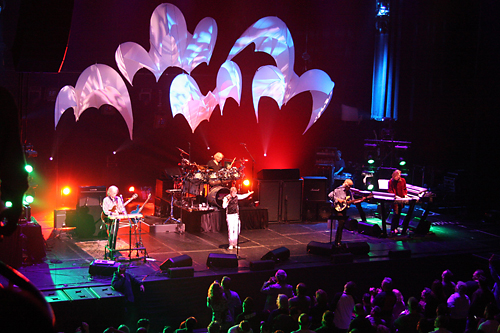
MPc: Now, who’s playing keyboards on the present tour?
CS: Geoff Downes played on the album and is playing live with us, too.
MPc: Let’s talk about your playing and gear now. For many bassists, you are the voice of Rickenbacker. If anyone ever wants to know what a Rickenbacker sounds like, look no further than putting on any Yes recording.
CS: Okay, well, that’s very complimentary of you, but it’s not the… there are other players — Paul McCartney being one — who used a Rickenbacker. But when he plays, when he plays the Rickenbacker, he sounds like himself. But of course I did [impart] a certain style and sound and obviously became very recognized for that. And so, thank you for the compliment.
MPc: You’re welcome. So, what is it that you love in particular about the Rickenbacker sound?
CS: Well, I think that it just happened. It’s something that as a teenager, I think I was 16 years old when I bought my first 4000. And I just grew up with that guitar, really, and we developed a relationship together. Which just is still developing to this day, actually, in the way that I play that particular instrument. And of course it’s my main go-to guitar and has been, and probably always will be. Even though I have a vast collection of other makes and styles of bass. It’s just the one that I started off with and probably will always be my main guitar.
MPc: Historically I think you used to route the bridge and neck pickup outputs to two separate amps. How did that contribute to your signature tone?
CS: I routed the two pickups differently because of my use of effects. And I didn’t use effects on some, on one of the pickups, certain effects and then on other effects I only used them on the other pickup. But then I would combine the sound again prior to it going to the amplifiers. So it was only through the effect routing system that they were split. And then they come together again and go into the mono sound into my Marshall 100-watt, which I’ve also had since the ‘60s. And my Ampeg rig, as well, which I use. So I have two amps on stage, basically. Which is also a good thing to have, should one of them ever break. And on the odd occasion, that has happened.
Time ran out for Chris to continue our discussion, but the effects of which he spoke include a Maestro Fuzz Unit, a custom built tremolo, TC Electronic chorus, reverb, and delay units, and a Mutron pedal from the ‘70s.


